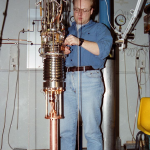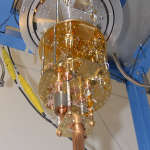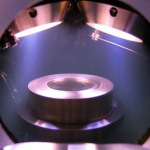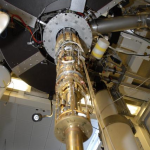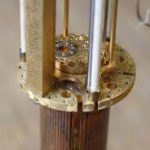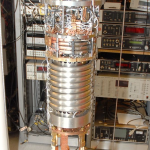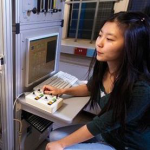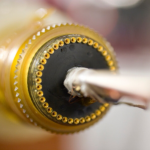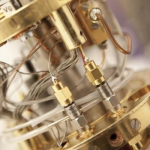

- Photon Transport in a Bose-Hubbard Chain of Superconducting Artificial Atoms
G. P. Fedorov et al., Phys. Rev. Lett. 126, 180503 (2021) - Path-Dependent Supercooling of the
He3 Superfluid A-B Transition
Dmytro Lotnyk et al., Phys. Rev. Lett. 126, 215301 (2021) - Superconductivity in an extreme strange metal
D. H. Nguyen et al., Nat Commun 12, 4341 (2021) - High-Q Silicon Nitride Drum Resonators Strongly Coupled to Gates
Xin Zhou et al., Nano Lett. 21, 5738-5744 (2021) - Measurement of the 229Th isomer energy with a magnetic micro-calorimeter
T. Sikorsky et al., Phys. Rev. Lett. 125 (2020) 142503
A spin qubit in a fin field-effect transistor
Leon C. Camenzind, Simon Geyer, Andreas Fuhrer, Richard J. Warburton, Dominik M. Zumbühl, Andreas V. KuhlmannThe greatest challenge in quantum computing is achieving scalability. Classical computing, which previously faced such issues, currently relies on silicon chips hosting billions of fin field-effect transistors. These devices are small enough for quantum applications: at low temperatures, an electron or hole trapped under the gate can serve as a spin qubit. Such an approach potentially allows the quantum hardware and its classical control electronics to be integrated on the same chip. However, this requires qubit operation at temperatures above 1 K, where the cooling overcomes heat dissipation. Here we show that silicon fin field-effect transistors can host spin qubits operating above 4 K. We achieve fast electrical control of hole spins with driving frequencies up to 150 MHz, single-qubit gate fidelities at the fault-tolerance threshold and a Rabi-oscillation quality factor greater than 87. Our devices feature both industry compatibility and quality, and are fabricated in a flexible and agile way that should accelerate further development.
Nat Electron 5, 178–183 (2022)
doi: 10.1038/s41928-022-00722-0
arxiv: https://arxiv.org/abs/2103.07369
